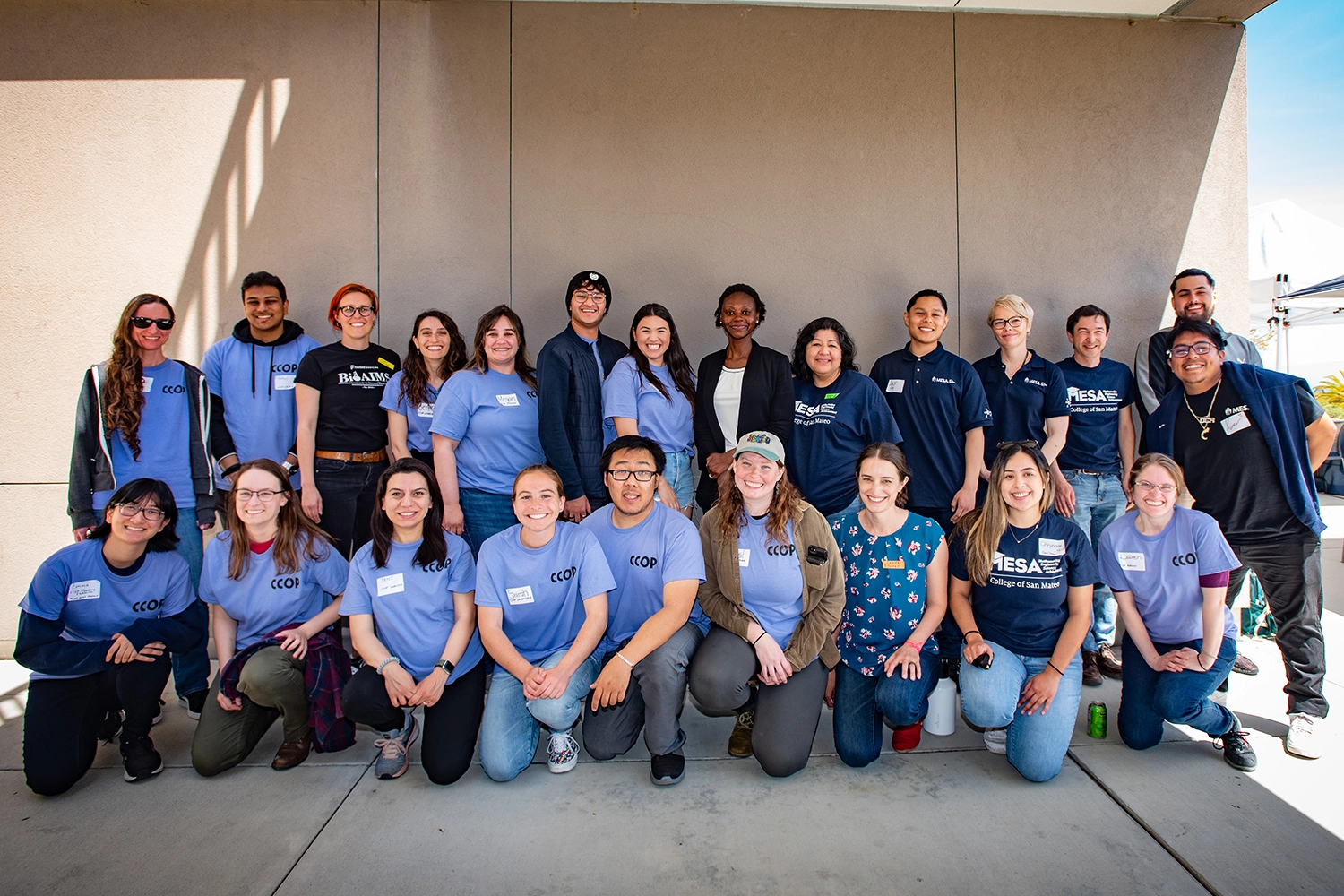Community College Outreach Program (CCOP)
The Community College Outreach Program leadership team and College of San Mateo MESA Program team at CCOP’s inaugural Day of Science Symposium held on the campus of College of San Mateo. (Image credit: College of San Mateo)
The CCOP, established by the Department of Developmental Biology, offers scientific mentorship and provides a first-rate research opportunity to underrepresented and underserved community college students, shifting perspectives on who can be a scientist, said CCOP Director Megan Agajanian.
It was founded in 2020 as a grassroots effort by developmental biology PhD students Teni Anbarchian and Wendy Wenderski, who both attended community college and wanted to support others.
“Our leadership team of Stanford trainees put in a tremendous amount of effort. We are grateful to those who have helped CCOP grow,” Agajanian said. “It is wonderful to see our work impact young scientists and be recognized by the faculty that nominated us, the selection committee, and Stanford leadership.
“We hope this recognition opens doors for similar outreach work, by spotlighting the need for and impact of our program in our scientific community. We hope to inspire members of the Stanford community to join us in our mission of making academia a more diverse, equitable, and inclusive space.”
The CCOP has directly impacted more than 150 community college students in San Mateo and Santa Clara counties and facilitated around 5,000 mentorship or service hours to community college students in STEM fields. One mentee thanked the CCOP “for giving me a chance to succeed and find my place in science.”
The CCOP has “enriched and diversified our Stanford community, strengthened our links to nearby community colleges, and most importantly, provided pathways for community college interns to learn about, and remain in, STEM careers,” said one nominator.
The program currently partners with the College of San Mateo, Cañada College, and Santa Clara’s Mission College to share opportunities, understand students’ needs, collaboratively build programs, and provide STEM research training.
In the program, community college students participate in a paid 10-week research internship at Stanford each quarter. The students are paired with a Stanford graduate student or postdoc, and a faculty advisor; read scientific literature; perform lab experiments; and prepare presentations.
CCOP’s 6-week career development boot camp includes mentorship from Stanford scientists and weekly workshops on how to apply to internships and scholarships and to transfer to a four-year university.
Participant surveys indicate an increased interest in science, confidence in abilities, inclination to pursue further education or careers in STEM, sense of belonging in the field, and likelihood of continuing research.
“We have seen incredible outcomes from mentees, and from Stanford trainees and labs that have seen immediate improvement on thoughts and actions around diversity, equity, and inclusion,” Agajanian said. “Our hope for the future is that CCOP becomes established within Stanford’s infrastructure, and we welcome all collaborations across Stanford to expand the impact of CCOP.”

